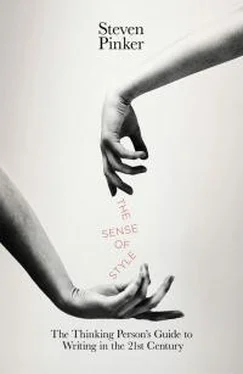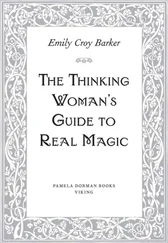convince
cause to believe (
She convinced him that vaccines are harmless.
)
cause to act (
She convinced him to have his child vaccinated
.)
Convince
supposedly contrasts with
persuade,
which means “cause to act,” but few writers care.
crescendo
gradual increase (
a long crescendo
)
climax, peak (
reach a crescendo
)
The insistence on the “increase” sense is an etymological fallacy, based on the Italian source and the technical term in music. The “climax” sense is entrenched, and accepted by a slim majority of the Usage Panel.
critique
noun (
a critique
)
verb (
to critique
)
The verb is widely disliked but venerable, and usefully different from
criticize
in implying analysis rather than censure.
decimate
destroy a tenth
destroy most
An etymological fallacy, based on the Roman punishment of mutinous legions.
due to
adjective (
The plane crash was due to a storm
.)
preposition (
The plane crashed due to a storm
.)
Actually, both are prepositions, and both are fine.
57
Frankenstein
the fictional scientist
a monster
If you insist on
We’ve created a Frankenstein’s monster!
you probably also popped champagne on Jan. 1, 2001, wondering where all the other revelers were. (“You see, there was no Year 0, so the third millennium really begins in 2001 …”) Give it up.
graduate
transitive and usually passive (
She was graduated from Harvard.
)
intransitive (
She graduated from Harvard
.)
The “correct” sense in the passive is increasingly obscure, though it persists in the active
Harvard graduated more lawyers this year
. The Usage Panel embraces the intransitive, though it hates the flipped transitive
She graduated Harvard
.
healthy
possessing good health (
Mabel is healthy.
)
healthful, conducive to good health (
Carrot juice is a healthy drink.
)
Healthy
meaning “conducive to health” has been more common than
healthful
for 500 years.
hopefully
verb phrase adverb: in a hopeful manner (
Hopefully, he invited her upstairs to see his etchings.
)
sentence adverb: it is to be hoped that (
Hopefully, it will stop hailing.
)
Many adverbs, such as
candidly, frankly,
and
mercifully
, modify both verb phrases and sentences.
Hopefully
is just newer, and became a purist cause célèbre in the 1960s. Irrational resistance lingers, but dictionaries and newspapers increasingly accept it.
intrigue
noun: a plot (
She got involved in another intrigue
.)
verb: to interest (
This really intrigues me.
)
This innocent verb is a target of two quack theories: verbs from nouns are bad; loan words from French are bad.
livid
black and blue, the color of a bruise
angry
Look it up.
loan
noun (
a loan
)
verb (
to loan
)
The verb goes back to 1200
CE
, but after the 17th century was lost in England and preserved in the US; that was enough to taint it.
masterful
domineering (
a masterful personality
)
expert, masterly (
a masterful performance
)
One of Fowler’s harebrained schemes to tidy up the language. A few purists slavishly copied his rule into their stylebooks, but writers ignore him.
momentarily
for a moment (
It rained momentarily
.)
in a moment (
I’ll be with you momentarily
.)
The “in a moment” sense is more recent, and less common in Britain than in the US, but completely acceptable. The two meanings can be distinguished by the context.
nauseous
nauseating (
a nauseous smell
)
nauseated (
The smell made me nauseous.
)
Despite furious opposition, the “nauseated” sense has taken over.
presently
soon
now
The more transparent “now” sense has been in continuous use for 500 years, particularly in speech, and the word is rarely ambiguous in context. About half the Usage Panel reject it, but for no good reason.
quote
verb (
to quote
)
noun, a truncation of
quotation
(
a quote
)
A matter of style: the noun is
acceptable in speech and informal writing, a bit less so in formal writing.
raise
nurture a farm animal or grow a crop (
raise a lamb, raise corn
)
rear a child, nurture a child (
raise a child
)
The childrearing sense dropped out of British English but remained in American, and is accepted by a resounding 93% of the Usage Panel.
transpire
become known (
It transpired that he had been sleeping with his campaign manager.
)
happen (
A lot has transpired since we last spoke
.)
The “become known” sense is fading; the “happen” sense has taken over, though it is perceived by many as pretentious.
while
at the same time (
While Rome burned, Nero fiddled
.)
whereas (
While some rules make sense, others don’t.
)
The “whereas” sense has been standard since 1749 and is as common as the “same time” sense. Usually it creates no ambiguity; if it does, rewrite the sentence.
whose
of a person (
a man whose heart is in the right place
)
of an entity (
an idea whose time has come; trees whose trunks were coated with ice
)
This handy pronoun can rescue many a phrase from awkwardness, e.g.,
trees the trunks of which were coated with ice.
There’s no good reason to avoid it with nonhuman antecedents.
And now the moment I’ve been waiting for: I get to be a purist! Here is a list of words which I am prepared to try to dissuade you from using in their nonstandard senses. (I’ll use the linguist’s convention of marking them with an asterisk.) Most of the nonstandard usages are malaprops traceable to a mishearing, a misunderstanding, or a kitschy attempt to sound sophisticated. A general rule for avoiding malaprops is to assume that the English language never tolerates two words with the same root and different affixes but the same meaning, like amused and bemused, fortunate and fortuitous, full and fulsome, simple and simplistic. If you know a word and then come across a similar one with a fancy prefix or suffix, resist the temptation to use it as a hoity-toity synonym. Your readers are likely to react as Inigo Montoya did in The Princess Bride to Vizzini’s repeated use of inconceivable to refer to events that just happened: “You keep using that word. I do not think it means what you think it means.”
Word
Preferred Usage
Problematic Usage
Comment
adverse
detrimental (
adverse effects
)
Читать дальше












